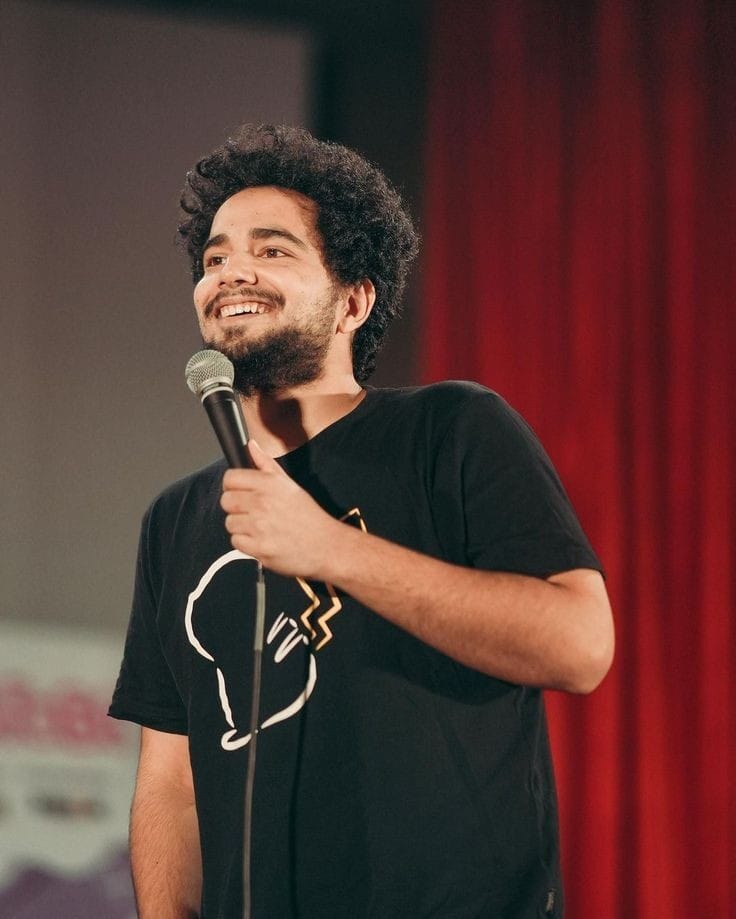What is comedy?
In today’s digital era, all kinds of content are just a click away. But what we are often presented with in the name of dark humor—can that truly be called comedy? What defines comedy? This is a discussion worth having.
As far as I can differentiate, comedy is something that brings a smile to a stranger’s face without resorting to abuse or hurting their self-respect. I have seen many comedians who excelled in comedy without using offensive language. Yes, I am talking about the late Mr. Raju Shrivastava and Sunil Pal. Not only them, but our country has also produced many brilliant comic poets who have made us laugh without relying on profanity.
Take, for instance, Surendra Sharma, Arun Jaimini, Shambhu Shikhar, and many more. Those were the days when we enjoyed such artists. But today, the entire landscape has changed. Today, dark humor has taken center stage, where comedians believe that hurling abuses makes them funny.
Yes, you guessed it right. We are talking about Samay Raina’s show, India’s Got Latent.
👉 AI and Chatbots transforming Online Search ? | Future of AI-Driven Search

What Actually Happened?
Samay Raina’s India’s Got Latent was gaining traction for its unfiltered humor and raw content. However, things took a turn when an episode featuring Ranveer Allahbadia sparked controversy for allegedly promoting explicit and inappropriate content. During the episode, Allahbadia asked a contestant a sexually suggestive question, which many viewers found distasteful and offensive.
The backlash was swift, with audiences taking to social media to express their anger. Critics argued that while comedy thrives on pushing boundaries, it also carries the responsibility of ensuring it does not descend into vulgarity. The show’s panel, which included comedians like Ashish Chanchlani, Jaspreet Singh, and Apoorva Makhija, also came under scrutiny for their participation.

Public Reaction and Divided Opinions
The incident has polarized opinions. On one hand, supporters of Raina argue that comedy should be free from excessive censorship and that the show was merely an attempt at satire. They believe cancel culture is stifling creative freedom, preventing comedians from experimenting with edgy humor.
On the other hand, critics maintain that comedy should have ethical boundaries, especially when content is accessible to a vast audience, including younger viewers. They argue that the remarks made during the show were not just edgy but outright inappropriate, making accountability necessary.
👉 From Spirituality to Virality: The Unseen Side of Kumbh Mela 2025 – 24 Insight

Conclusion
Samay Raina’s India’s Got Latent controversy has sparked a broader conversation about comedy, censorship, and responsibility in digital content creation. Whether one sees this as an overreaction or a necessary call for accountability, one thing is clear—content creators must be mindful of the power and reach of their platforms.
As the dust settles, the industry must reflect on how to foster a space where humor thrives without crossing into problematic territory. What happens next could set a precedent for future discussions around digital content and ethical boundaries.
Beyond this, the most important question remains: What kind of content should we consume, and what effect does such content have on our children? The answer is simple—we should engage with content that educates us, enhances our skills, and adds value to our lives. It is up to us to filter what we watch and listen to.
If you liked this article, please share it and let us know your suggestions so we can continue to improve.